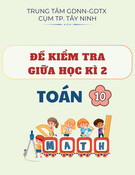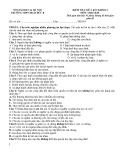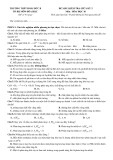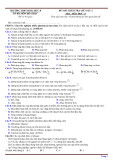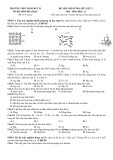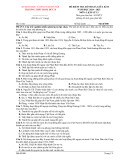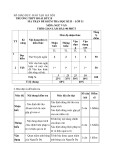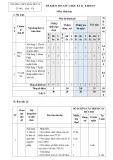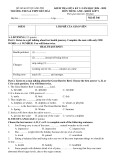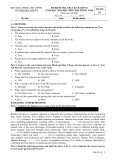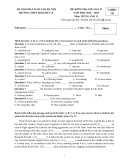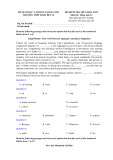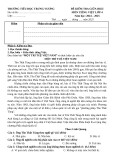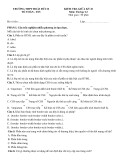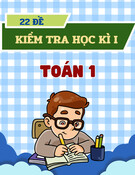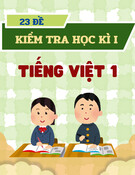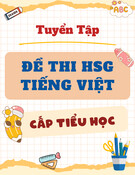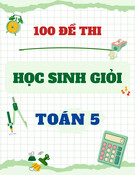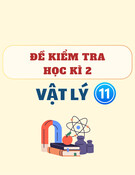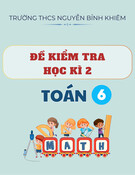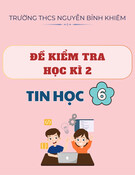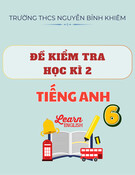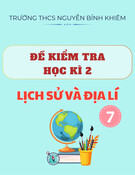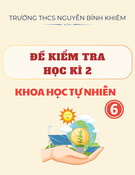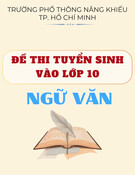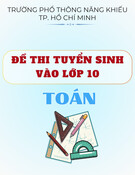
A. terrible B. multi-storey C. beautiful D. poor
Mark the letter A, B, C or D to indicate the most suitable response to complete the following
exchange.
12. Teacher: It’s necessary that you finish homework by tomorrow.
Mike: __________________________________
A. I’m sorry, I don’t like homework. B. I’m sorry. I have finished it.
C. Must I? What if I don’t? D. Yes, sir. I’ll finish it.
II. READING (2.5 pts)
PART 1: Read the following passage and mark the letter A, B, C, or D to indicate the option that
best fits each of numbered blanks from 13 to 16. (1.0 pt)
Mount Everest (Mt. Everest) is the highest mountain (13) _____ the world. It is 8,848
metres high. Mt. Everest was first climbed in 1953 by Edmund Hillary and Tenzing Norgay.
Every year, a lot of people want to climb Mt. Everest.
It is very dangerous to climb Mt. Everest. The air is very (14) _____ and cold. Most people
carry bottles of oxygen; they could die without it. When the oxygen bottles are empty, people
throw them on the ground. (15) _____ strong winds rip their tents, people leave them behind.
They do not have the energy to take the rubbish away. They only have enough energy to go
down the mountain safety.
Rubbish is a terrible problem. Since people first began to climb Mt. Everest, they have
left tons and tons of rubbish on the mountain. Several groups have climbed the mountain just
to (16) _____ the rubbish. When people plan to climb the mountain, they have to plan to take
away their rubbish.
13. A. on B. in C. for D. to
14. A. thin B. pleasant C. thick D. light
15. A. Unless B. Until C. When D. Before
16. A. get out B. pick up C. take off D. turn down
PART 2: Read the following passage and do the tasks below. (1.5 pts)
If you want to learn English more quickly, lots of reading is important. When you read in
English, you can improve your vocabulary, grammar, and writing at the same time.
When you read, try to figure out the meaning of a new word from the words around it.
Even if you are not always correct, it is good to practise thinking about what a new word might
mean. You may need to learn the meaning of a word or phrase. The more words you understand,
the better you will be able to read. A dictionary - hard copy or online version - can help you
find the meanings of words which are new to you. You should keep a list of new words, their
definitions, and a sentence for each word which shows how to properly use it. You can keep
this vocabulary list in a notebook you always have with you. This helps you to revise what you
have learnt wherever you are.






